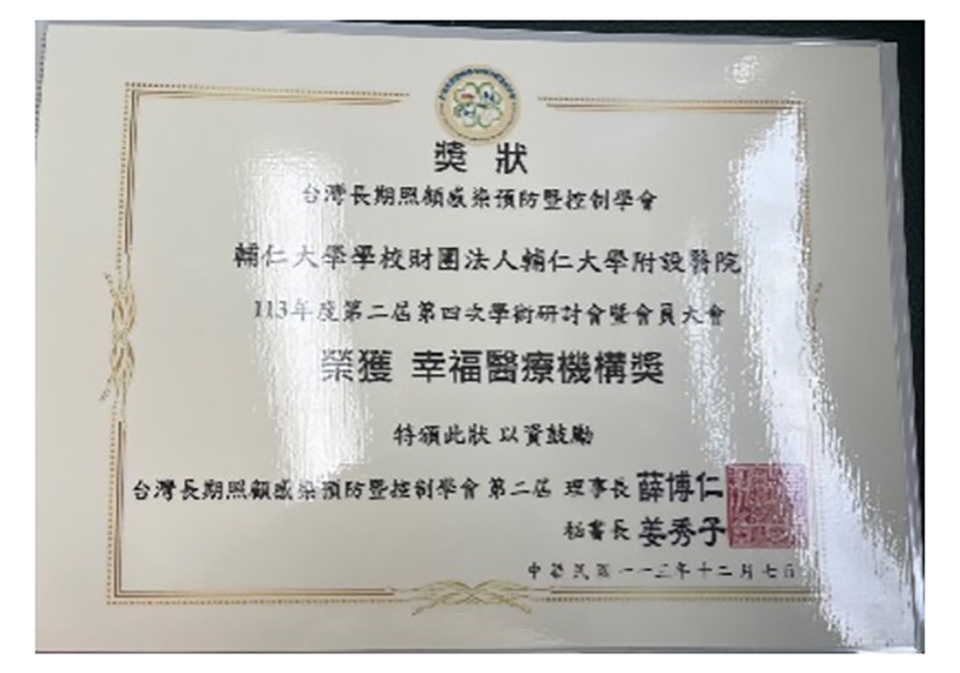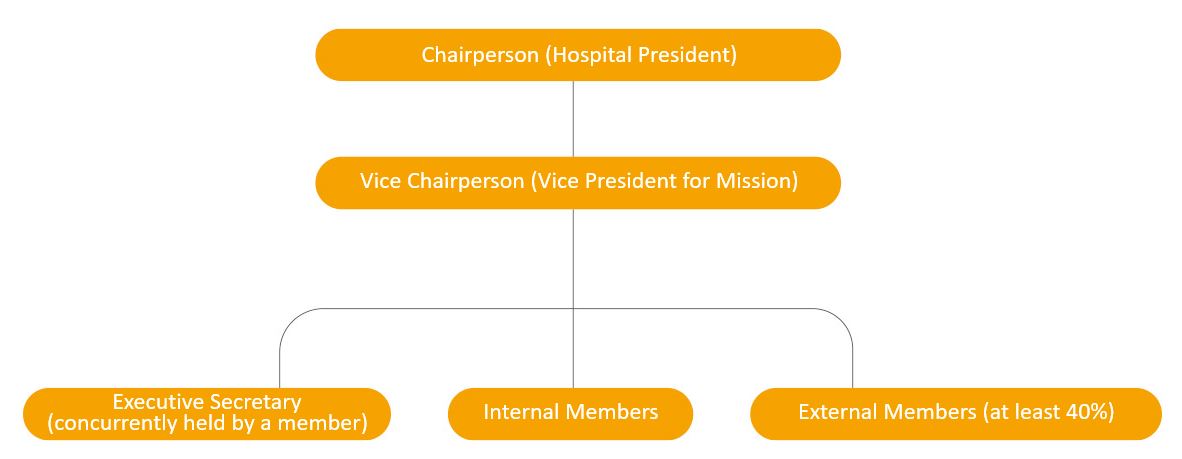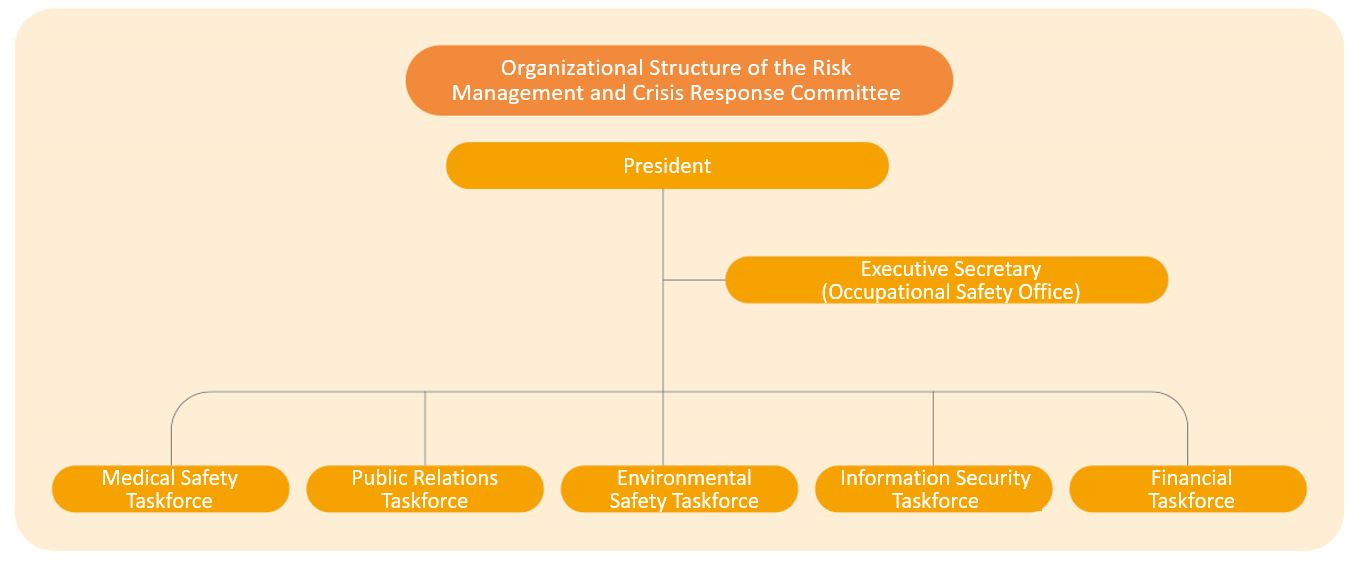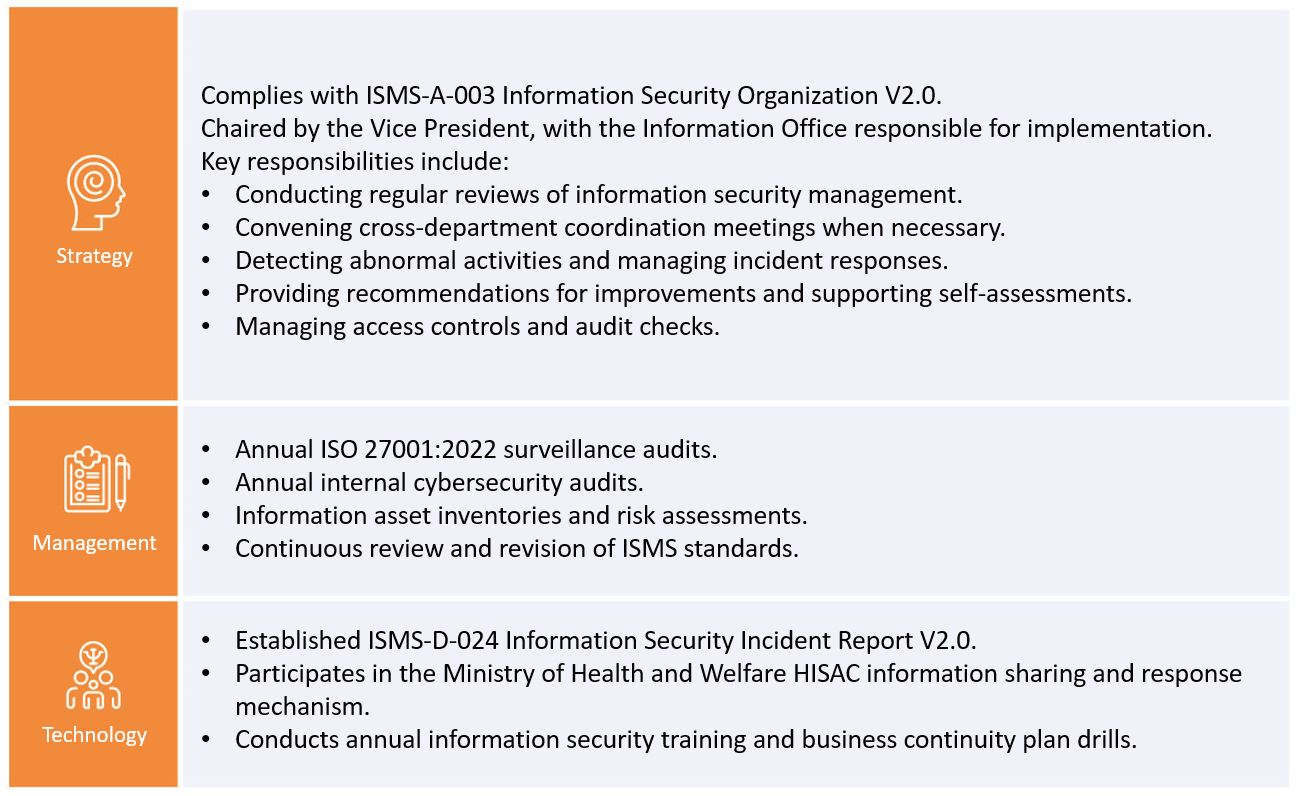Award Highlights
To demonstrate excellence in infection control and long-term care quality, FJUH participated in the "2024 Annual Conference of the Taiwan Society for Long-Term Care Infection Prevention and Control" and was awarded the "Happy Healthcare Institution Award." This accolade affirms the hospital's continuous efforts in infection control, care environment optimization, and the cultivation of infection prevention professionals.

This recognition not only affirms FJUH's robust epidemic prevention and infection control culture, but also underscores our steadfast commitment to patient safety, employee well-being, and the responsibilities of sustainable care.
Annual Sustainability Performance and Action Management
- Medical Ethics Practice: Two Advanced Care Planning seminars were held, with 114 participants and a total of over 866 training hours.
- Materiality Identification: Completed the review of 12 material topics and cross-departmental KPI assignments.
- Governance Enhancement: ESG issues were formally incorporated into management meeting records and strategic objectives.
Management Structure and Business Strategy
The hospital's highest governing body is the Board of Directors of Fu Jen Catholic University, which oversees FJUH through the Hospital Management Committee. The governance and management teams collaborate to plan organizational structures, command systems, and establish internal supervision and governance mechanisms.
The management team, composed of the President and Vice Presidents, coordinates operations across medical, nursing, allied health, and administrative domains. Together, they supervise 17 administrative units, nine medical support units, 28 medical departments, 15 functional centers, and five project committees to ensure smooth operations and high-quality healthcare.
The Medical Ethics Committee Structure

Operational Performance
Guided by its core values of "Truth, Goodness, Beauty, and Holiness," FJUH delivers professional, patient-centered healthcare while actively engaging in research, community care, and talent cultivation.
In terms of resource utilization, Fu Jen Catholic University Hospital adheres to the principles of integrity and prudence in financial management, ensuring that capital allocation balances both core medical operations and the needs of sustainable development. By enhancing operational efficiency, disclosing financial information with transparency, and allocating subsidies and infrastructure investments appropriately, the hospital achieves a balance between economic performance and social value. These efforts continuously strengthen FJUH's organizational resilience and its long-term contribution to society.
Within the regional healthcare system, the hospital plays a pivotal role, with a total of 671 beds, including 23 emergency observation beds, 43 hemodialysis beds, and 10 neonatal beds. In the same year, medical service revenues reached NT$5.795 billion, representing a 4.6% increase compared to the previous year. This reflects the hospital's solid operational performance and the effectiveness of its medical services.
In 2024, medical service revenues reached NT$57.95 billion, a 4.6% increase from the previous year. That same year, the hospital secured NT$48.68 million in grants from the Ministry of Health and Welfare, the National Science and Technology Council, and the National Health Research Institutes.
Ethical Business Practices and Anti-Corruption Measures
FJUH upholds integrity and professional values, guided by policies such as the Internal Control Implementation Guidelines, Internal Audit Regulations, and Internal Control Committee Charter. Regular reviews and updates ensure the identification and mitigation of risks, thereby strengthening overall compliance effectiveness.
From 2022 to 2024, courses included: Leadership in Core Values, Holistic Healthcare and Spiritual Care, Hospital Ethics Mechanisms, and The Four Cardinal Virtues. In 2024, new courses were introduced, such as Empathetic Communication and Media and Healthcare Decision-Making. No corruption cases were reported in 2024.
Legal Compliance and Regulatory Adherence
The Legal Affairs Office is led by a lawyer with 15 years of practice and collaborates with external counsel to provide legal advisory and compliance support. The Audit Office conducts compliance audits, with results reported to the Board of Directors.
In 2024, a total of 13 legal compliance courses were delivered, with 1,234 participants. Mandatory courses included sexual harassment prevention and workplace misconduct awareness.
Hospital Resilience Management

Risk management is a key mechanism for FJUH's sustainable operations and patient safety. The hospital emphasizes systematic identification and control of both internal and external risks. Regular assessments and contingency planning are conducted to identify and mitigate risk factors that may impact operations, medical quality, information security, regulatory compliance, and public health incidents, thereby mitigating potential short- and long-term impacts.
The hospital conducts Hazard Vulnerability Assessments (HVA) to evaluate potential risks and response capacities for various types of disasters. Based on these assessments, specific contingency measures are developed. Specialized units regularly review the effectiveness of disaster mitigation, prevention, and response plans, adjusting risk values and strategies mid-term to maintain system validity and timeliness.
- Fire Safety Inspections: Conducted annually by the Occupational Safety Office under the supervision of the Department of Health.
- Fire Drills: A total of 8 sessions were held in 2024; in 2025, violence-prevention drills will be expanded to outpatient clinics.
Information Security Management




